Bill Black traces the history of modern American financial fraud starting in this episode with the S&L Banking scandal. Bankers continue to loot their banks, customers, and society to this day. Part 1/9 on theAnalysis.news with Paul Jay.
Transcript
Paul Jay
Hi, I’m Paul Jay. Welcome to theAnalysis.news, please don’t forget the donate button and the subscribe button if you’re on YouTube, and be back in a second.
In 2014, a billion dollars disappeared from three Moldovan banks. The Republic of Moldova is a tiny, landlocked country in Eastern Europe. How did a billion dollars do a vanishing act? That’s 12 percent of the country’s GDP.
As the title of Bill Black’s book says, the best way to rob a bank is to own one and that’s more or less what happened in Moldova. The heads of the three major banks created a Ponzi scheme between them, loaning and hiding money with each other, moving it offshore to hide the assets. A carousel borrowing scheme was applied. Loans in one bank were paid off with loans from another. The banking fraud in the United States that led to the crash of 07 and 08 makes the Moldovan scandal look like child’s play.
Here’s the thing, in Moldovia, many of those that were responsible for the fraud went to jail, in the U.S. other than one mid-level trader, it was none that went to jail. Not a single senior executive ever charged in one of the biggest financial frauds ever. Has the situation changed? Could such a scam repeat itself? A docuseries titled The Con breaks down what happened during those years leading up to 2007 08? Here’s a trailer from the docuseries.
Excerpt from The Con
“I’m neither an economist or a scholar. I’m just an average American who lost my home and very nearly my family to foreclosure when the market imploded, and I’ve spent almost every day since trying to find out why. Once the dust settled, it quickly became clear that my story was no different than millions of other Americans. We all thought that we were alone. We all thought that we’d failed, but none of us really knew why. With a gun in her hand, Addie Polk apparently shot herself in the chest as deputies were knocking on her door with eviction papers in hand. This dramatic increase in mortgage fraud cases was the canary in the mine. It was the warning. This was money chasing people. This was not somebody looking for a loan. It was all designed to maximize profits for all of the different players.
The person who sold you a loan made more money if they sold you a higher rate loan. They were sold a lot. They’re selling to their very clients these loans that they know are a disaster. I lost my home not because of money, because of fraud. I don’t believe Addie Polk took out the mortgage on my home. I don’t believe she signed any documents. They just generated all this junk, took home huge bonuses, and then when it collapsed, they said, oh, not us. This notion that the financial crisis was there wasn’t fraud and there wasn’t crime is absolutely wrong. It’s dead.
We were targeting, in many cases, minorities. We were waiting for the leadership to say, go, that never happened. The investigation was suppressed. This was all part of the same puzzle that was falling apart. This is the largest conspiracy of lies in the history of the world. This investigation has just begun.
Paul Jay
Now joining us to discuss the history and present state of what he calls control fraud is Bill Black, who’s in the film and was an adviser to its producers. Bill is an American lawyer, academic, author, and former bank regulator with expertise in white-collar crime, public finance, regulation, and other topics in law and economics. In fact, he’s an associate professor at the University of Missouri, Kansas City in Law and Economics. As I mentioned, he’s the author of the book The Best Way to Rob a Bank is To Own One. Thanks for joining us again, Bill.
Bill Black
Thank you.
Paul Jay
So, let’s start with this term you use, “control fraud’. What is it and when does this start to appear in finance?
Bill Black
Well, it started to appear in finance as soon as there was finance, and it isn’t unique to finance either. It’s obviously an ungainly term. I mean, what the heck is control fraud, and here’s the reason for the ungainliness. The insight we had was that when the people who control a seemingly legitimate entity, whether it’s the government or a nonprofit or a for-profit firm, are able to use that seemingly legitimate entity as a weapon to defraud and predate, and a shield that protects them largely against being held responsible, accountable for their depredations, then you’re going to get massively more harmful forms of fraud and predation. And why control? Because the context we developed it in was the savings and loan debacle and the most notorious fraud there was Charles Keating, and he never held the position with Lincoln Savings, the entity that he was using as his weapon and shield, yet he utterly controlled every aspect of the institution.
Paul Jay
OK, now I assume that a lot of our viewers, especially younger ones, but others as well, have no idea what you’re talking about. What happened during the savings and loan crisis? When was that? And out of that, how did the control fraud appear?
Bill Black
OK, so by the way, as we discuss this, it’s the 30th anniversary of one of the key events in that savings and loan debacle when that Charles Keating, who was the most notorious fraud, Looting his savings and loan, was able to bring together a whole series of senators to try to extort first the head of our agency and then a group of us who were the regional regulators in San Francisco, and they went on.
Paul Jay
What’s the agency?
Bill Black
Well, the agency was called at the time the Federal Home Loan Bank Board, but it was about to change its name to the Office of Thrift Supervision. So that gets a little complicated, and we were in a regional entity that had still another name. So, I’m going to avoid the names so much and describe what they functionally did most of the time in all of this. In any event, we realized that if you controlled the firm first, people wouldn’t believe that you would loot the firm. That seemed crazy to them, but of course, if you think about it, that’s who you can loot with impunity because you know where all the safeguards are. Indeed, you are supposed to be the principal safeguard. It’s like a homeowner who wants to commit insurance fraud, right? You have a code, and you turn off the home alarm system and you take the things out of your house. You can do that very easily. Well, the CEO can do that even more easily, and what we realized was they use seemingly normal corporate mechanisms to do this. They just use accounting to massively overstate earnings, and then under modern executive compensation, that automatically triggers a huge bonus, and the company then pays the CEO and the other officers these huge bonuses.
If you stuck your hand in the till in America as a CEO and took just ten thousand bucks, you’d go to prison for 20 years, but you could take out twenty million, forty million, two billion, through the mechanisms I just explained and never go to jail. This was a really sweet scheme that people had developed, and the way we figured it out is we did autopsies of every failure in the savings and loan debacle. Everybody knew. Everybody told us it’s not fraud, it’s just people “gambling for resurrection”. It was almost a Christian, type of thing, right? The bank was losing money, and so the valiant CEO took high-risk, and sadly, they often lost those high-risk gambles and such. We said no, that doesn’t make any sense, and here are two reasons it doesn’t make any sense. So first, if you were just gambling, you wouldn’t have the pattern of purported success that they were reporting, right? If you’re taking a bunch of high-risk honest gambles, you’d win some big you’d win a few small and you’d lose a lot big. Right.
Paul Jay
Now, the gambles are loans they’re making.
Bill Black
That’s right. The gamble is making riskier loans, went the logic. You would expect to see a pattern like that, some winners, some losers type of thing. Except that everybody that followed this pattern that we identified as actually being looting, looting the savings and loan through accounting fraud, reported winning at first and not just winning, but winning at first, right, and they were literally reporting in places like Lincoln Savings, Vernon’s Savings, which we in the regulatory ranks refer to as vermin. Right, by the time we got through the speaker of the House, Jim Wright’s efforts to prevent us from taking the place over, 96 percent of its loans were in default.
Paul Jay
Give us an idea how many banks were involved and when was this? This is during Reagan.
Bill Black
This is Ronald Reagan. This begins in 1981-ish. So right at the beginning of the Reagan revolution, and it’s facilitated through the first appointee as the top regulator for savings and loans by Ronald Reagan. An academic account economist Dick Pratt, very smart, very quick, clever guy type of thing, but a huge believer in laissez-faire.
He deregulated and he said, hey, we have this, in jargon, it’s called a natural experiment, because there are many different jurisdictions in the United States. 50 different states, and they have different state regulatory patterns. So, we’ll look and find in all of the United States which state has the most successful savings and loans, and then our deregulation will emulate their deregulation where they’ve already deregulated, and they looked and they said Texas, Texas is the model that you need to follow. It’s far and away reporting the best results. Well, of course, it was that’s where the fraud started because that’s where the deregulation started, and the frauds are a sure thing. They are mathematically guaranteed if you follow what we identified as the recipe for accounting control, fraud for looting. If you follow that recipe, it is a sure thing, right? You will absolutely report record profits. They won’t be real, but you’ll report record profits. So, he used the worst possible model for his deregulation and then he deliberately set off what economists called a race to the bottom, which they thought was a good thing because regulation, bad, deregulation, good.
Remember this. In fact, it had begun with Jimmy Carter at the national level before Ronald Reagan. Both parties really believed in this deregulation stuff. So great, Texas is deregulated already, now the United States at the federal level will deregulate even more than Texas. That will set off a race to the bottom where Texas and California will try to deregulate even more and for good reason. In the United States, we have this doctrine called supremacy of the federal government, which means that we can preempt any state efforts to get in the way. So, if the feds deregulate, the state can’t do anything to you, but if the state can’t do anything to your savings and loan to either help you or hurt you, why should you make political contributions to the state banking chairman of the Senate or House answer. You wouldn’t, so that was a powerful incentive to keep the flow of money to the key committee chairmen to deregulate, and California and Texas won the race to the bottom, and these two states produce 60 percent of the total losses out of the savings loan debacle of the 1980s and 1990s.
So good policy, right, in all of these things, in our jargon, I have a doctorate in criminology and I study elite fraud and corruption principally within those fields. This is going to mean what we call a criminogenic environment, and that’s a direct steal from natural science, where we talk about pathogenic environments, an environment, like a cesspool that produces lots of bacteria and viruses and such and causes lots of infections where you get the same thing happening throughout whatever portion of the economy you deregulate.
In particular, finance is most susceptible to this. So they deregulated at the worst possible time in the worst possible way, and they said simultaneously, they put in writing, we don’t have to worry about no stinking fraud. Fraud is inherently trivial. Right, and I’m not overstating. I mean, it’s not the exact words, but I’m not overstating.
Paul Jay
Who said that?
Bill Black
The head of the agency [Dick Pratt], a top academic economist, expert in finance, said.
Paul Jay
Well, were they in on it? The fraud?
Bill Black
What my saying is of this era, it always is. The sad fact is you didn’t have to bribe anyone. They really believed in laissez-faire, so to skip ahead a few years, there’s this road to Damascus experience. Apparently it’s a big biblical day in our talk. His successor, Ed Gray. Now, his successor is a personal family friend of both of the Reagans, Mrs. Reagan as well. Critical to his survival, and he’s a PR guy, right, that’s his thing. So, in the midst of the worst financial scandal in U.S. history at the time, President Reagan says, let me put a PR guy in charge, because what the hell, right? And the trade association, which political scientists rated the third most powerful in the United States. It was called the League of Savings Institutions. They go and tell Ed Gray, you’re getting this position because of us. We lobbied with the administration and we lobbied to get you because we were sure you would do what we want done, they tell him this and he tells us the senior staff. So, this is the world, and then two things happen. First, the examiners, the examiners are the people that actually go out into the field and they don’t just look at what the institution writes in propaganda policies and such. They look at what’s actually happening. They’re the people closest, and it turns out to that to be able to run the scams I’m talking about, you have to destroy what’s called the loan underwriting process. Now, that’s insane because the loan underwriting process is what makes banks profitable, honestly profitable.
Paul Jay
They evaluate the risk.
Bill Black
Should we take it and if so, at what price? Right. So, it’s the most critical thing that you would never do if you were an honest banker, which is of course how spoiler alert, we’re going to convict of felonies over a thousand elites, out of the savings and loan debacle, completely different than what’s going to happen in the great financial crisis. OK, so Ed Gray comes in and the first thing he does is he listens to the examiners.
They put in every month these Significant Supervisory Cases, and this is the coming problem. There are roughly three thousand savings and loans and the number in this SSE case book grows from around one hundred to around five hundred. OK, and they are short write-ups, but Gray reads them religiously and he goes. Oh, shit. None of this is running the way the economists claim it’s running, it’s a coming disaster, and then he has the peak of his road to Damascus experience. This wonderful, laconic Texan, with a pronounced Texas twang, no art at all, in a Texas accent, but he knows his stuff about underwriting and such, and he drives and he’s taking pictures like the eight-millimeter stuff in those days. This is 1982-ish, 1983-ish. So, he’s driving for miles with the camera stuck out and narrating as he’s going along. In an utterly no inflection voice. He’s not excited, Gray calls it financial pornography, watching it because it’s mile after mile after mile of real estate developments that aren’t really being developed where they are just wasting all the material. You can see it rotting on the ground and it goes on for over an hour driving around this huge complex, even goes up in a plane and does the same thing looking down. Many of these things were so bad that they never got beyond the concrete pad for the home.
Paul Jay
And these are all phony loans for building these things.
Bill Black
Right, we call them Martian landing pads. Gray, who’s this ardent anti-regulator; He really loves Ronald Reagan and Mrs. Reagan, goes this is obscene and it’s going to produce a catastrophe. It is my duty, though, I hate it, to try to do everything I have to throw myself in front of this bus. He predicts to us that it will destroy his career both in business and in politics. He’s like 52 prime, super high in a significant position, a riser, and a personal friend, as I say, of the folks, and he knows it’s going to piss off the Reagans. He starts re-regulating. Charles Keating, alleged super Christian, who’s actually a massive fraudster, is an incredible lobbyist, and since he’s looting Lincoln Savings, what does he care? He knows the institution is going to fail if you spend an extra 20 million on lobbying. So what? So he lobbies like crazy. He hires Alan Greenspan as a lobbyist. Alan Greenspan personally walks around the Senate recruiting the five U.S. senators who will become known as the Keating Five when they meet with us on April 9th, 1987, to try to extort us to not take enforcement action against Lincoln Savings on behalf of and I quote “our good friend Charles Keating” type of thing. When Gray begins this reregulation, this majority at the express request of Charles Keating’s lobbying effort. Keating was a top 100 granter, a donor to Reagan and Bush. He was very politically connected. A majority of the House of Representatives co-sponsored a resolution telling us to stop the re-regulation. The entire leadership of both parties in the House signed that. So think of this, you’ve got the president against you, Vice President Bush is running the financial deregulation task force. He hates you, the chief of staff, the former Marine, the former head of Merrill Lynch hates you and is against you. OMB is trying to destroy you. OMB files a criminal referral against Ed Gray on the grounds that he’s closing too many insolvent savings and loans.
Paul Jay
And how many had he closed by that point? But they were insolvent.
Bill Black
Yes, but you have to understand the highest priority of the Reagan administration vis a vis the savings and loan debacle at all times, the red line was that you could not say it’s going to require a federal bailout, because that would mean the federal deficit was really $150 billion bigger and of course, President Reagan’s top priority was getting the tax cut, and the argument against it was the deficit swelling, and so if they had to admit that the deficit was really much larger, they might not get the tax cut.
Paul Jay
The hole of the bank debt was about 150 billion bucks?
Bill Black
The hole in the insurance fund, so the industry was insolvent on a market value basis by roughly $150 billion, and there were $6 billion in the insurance funds still. So, we went to work every day wondering whether there was going to be a nationwide run for five years.
Paul Jay
How much of this was public at this time?
Bill Black
It was not made public because this was the red line, right? Gray knew that if he crossed this red line he’d be removed immediately. So, we just didn’t talk about how much it was ultimately going to cost, we just went about trying to make sure it cost as little as possible.
Paul Jay
So, thousands of banks are involved in fraud?
No, three hundred savings and loans were growing more than 50 percent annually, and we’re following this looting strategy of fraud, but Gray’s first action, which was before he saw the Texas guys tape, the financial pornography, just reading the examiners Significant Supervisory Cases. The first thing he did, which was in November of 1983, which was essentially when the deregulation that his predecessor had put in place was kicking in, Gray stopped any new savings and loans from starting in California, Texas, and Florida, and the frauds, were almost always real estate developers who were failing, and of course, the dream of every real estate developer is to own their own captive lender like a bank or a savings and loan, because that’s what you need as a real estate developer– funding. If you have your own bank or savings and loan, that’s never an issue type of thing. So, this was like the dream of all time for these sleazy developers.
Paul Jay
And whose money is in these savings and loan?
Bill Black
Well, overwhelmingly ours, right? They are deposits. In America as opposed to other countries the liability side of a bank is almost entirely deposits and in the American context, almost all of those deposits are fully insured by the federal government. So, who’s on the hook really? The taxpayers are on the hook. Europe has many more large loans, typically from other banks. That is uninsured hot money, as it’s called. So, you can see Gray is going to commit political and career suicide and knows that he’s going to commit it. The trade association, of course, instantly turns against him as well. So, if you look at the correlation of forces as the military talks about it, it’s everybody on one side against Gray and pretty much Gray on the other. So obviously, we’re going to lose, and here’s the remarkable thing, yeah, we lost personally. We’re unemployable in government, but we stopped this raging epidemic of fraud and the new entrants. Gray by saying no more of these real estate developers are going to come in the door in California and Texas and Florida, he prevented it from becoming any kind of even mild recession, much less a great financial crisis. That’s just the second stage.
The third stage turns out to actually be the great financial crisis, and for that, you have to know what Gray’s big legacy was. Gray did something really simple. He knew, as I said, that the two great disasters were California and Texas, so he asked everybody he had respect for who were the two top financial supervisors in America, and then he personally recruited them, and appointed them in California and Texas.
The guy in Texas was Joe Selby, who had twice risen through the ranks at the Office of the Comptroller of the Currency, the acting comptroller of the Currency, but of course, he would never be made head because you’d have to be politically powerful to get that kind of thing. So getting him was a real coup and he put him in the absolute worst place, which was Texas. Selby was from Texas. Selby knew that this was going to end disastrously for him because Selby was gay, and the speaker of the House, the Democratic speaker of the House, Jim Wright called up Ed Gray and demanded that Gray get rid of Selby on the grounds that Selby was a homosexual. This is how recently these things were that badly screwed up. Even after we brought Charles Keating down, he sued, and one of his lieutenants began a deposition demanding to know who the employees at the Federal Home Loan Bank of San Francisco, where I was the top lawyer by then, were homosexuals. Under the allegation that gays are secretive, and they must have a secret conspiracy against Charles Keating because he’s a Christian. The chief judge, based on what we call a proffer by the lawyer that says, I have a good faith basis for this conspiracy. I’m not just making this shit up right – the judge, the chief judge in Arizona, which is where Lincoln Savings Home was, the parent company, allowed those questions. Now, after that good faith basis, the second question of that lawyer was, have you ever heard a rumor about who might be gay at San Francisco Bank, which is kind of inconsistent with a proffer. Our moderately senior supervisor who is being deposed came back at lunch break in absolute tears. She was just completely broken down by this outrageous treatment, and so this is the first I hear about it and I say the deposition is over, we are going to go for emergency writ in front of the judge, and of course, we destroyed them in that. They had absolutely no basis, but at that hearing, they started the hearing by making a motion to exclude me from the courtroom.
The lawyers for the Keating lieutenant say you shouldn’t allow Bill Black to be in this room, and the judge said that may have worked with Danny Wall, Gray’s infamous successor who caves into Keatings demands and extortion, but it is not going to work in this courtroom, and then because he’d been lied to in the proffer, he basically chopped the heads off these folks. That lieutenant I saw in other depositions. I went up to him and told him how scurrilous I thought he was. He said, I can’t be bigoted. I’m black. Well, I guess you proved it. Again, people forget how recently this kind of homophobia was absolutely dominant and could destroy executives. The point is, Selby prevented a Texas disaster from becoming a Texas catastrophe, knew it would lead not under Gray, but under his successors to his being smeared and fired and did it anyway for America. Mike Patriarca, a name people have not heard was his counterpart in California that I worked with, and he stopped the first aspect that I’ve talked about, this looting.
Now, I want to transition to the second aspect, which Patriarca also stops, and that is what becomes the great financial crisis, which actually is the third act of the savings and loan debacle of the early 1990s. This is literally true, Orange County, California, is the financial fraud capital of the world, not America, the world. We were out there and California had jurisdiction over it, and so the examiners came to us. Again, the examiners are the hero of this story, and they said there’s a new scam, and you’ve got to stop it.
Paul Jay
What year are we in?
Bill Black
This is 1990. All right, there’s a new scam and you’ve got to stop it now. So in 1990, we are still dealing with the second act of the savings loan debacle, the looting that I was talking about, and we are incredibly overwhelmed.
Is anybody charged at this point?
Oh, yes, hundreds, but you’re right to ask. It doesn’t happen immediately and I’ll bring you back, but I’ll tell that story briefly. No one was being charged in the 1980s. There wasn’t even a criminal referral system that was coherent. So first under Gray. Gray said, look, here are two top priorities. One, get the frauds out of controlling the savings and loan because as long as they’re in control, the losses are going to mount exponentially. Two, once you get them out, hold them personally accountable wherever possible by criminal prosecution. Also by lawsuits, not against the savings and loan, lawsuits against them, where you grab their funds.
So that’s what we did. So we figured out we had to develop a criminal referral system. So we started making referrals and soon we were making thousands of referrals. We decided to make them public every month. Well, this is back in the day when there were actually more reporters in places and pretty soon places like The Washington Post noticed. There are five thousand criminal referrals and only three prosecutions. What the hell’s going on? And they would start writing stories.
Paul Jay
Criminal referral means your agency tells the Department of Justice there’s a case here. It’s a referral to the DOJ. Am I right?
Bill Black
That is correct, And the FBI. They’re not just, hey, we think we got a problem. We had criminal referral coordinators and they met periodically with their counterparts, the FBI and Department of Justice. We got feedback on every major referral and then we would retrain folks about, OK, this is what they want, they think is weak. This is the strong part, and it got better and better. Continuous improvement regime and B school type jargon. These became superb. In major cases, the text was 40, 60 pages, and 200 to 400 pages of attachments with all kinds of easy things about how to find the most useful stuff. We really set out the entire path to make the prosecution successful.
Paul Jay
So, hundreds of these types of referrals and how many actual charges at that point.
Bill Black
So, thousands of these referrals and in the mid-1980s, essentially two or three prosecutions. The attorney general actually puts in his memoir that they just got tired of getting bashed with all of this. When a new guy comes in after the disgraceful Danny Wall, who gave in to the pressure of the five senators and the speaker of the House. The new guy was Tim Ryan. This is Bush one appointing Tim Ryan to be the new head of the agency. A very bright lawyer, and he hires a very aggressive litigator as his person because as he explains to me personally, he met with Bush and Bush said, your job is to get the heads of the most prominent crooks on pikes.
OK, new regime. He gets appointed in like 1992-ish and such there are over 20,000 thousand criminal referrals, by then there were 30,000 criminal referrals. By then there were a meaningful number of prosecutions, but Tim Ryan also sacrificed his career for the public knowingly, and what he did is bring an enforcement action. We massively increased enforcement actions as well. He brought an enforcement action against the son of a sitting president of the United States of America, and he’s been unemployable since.
Paul Jay
Which one?
Bill Black
Neil Bush. He’s the guy that brought that enforcement action and everybody knew what was going to happen if he did that, he was a super-fast tracker.
Paul Jay
If you go back to Gray and the gentleman you’re talking about now and you and your team, if all of you had caved to the pressure, what would have happened?
Bill Black
Something akin to the great financial crisis would have happened in the mid-90s.
Paul Jay
Which means these banks would have all failed, the federal insurance plan would have to have stepped in at the rate of.
Bill Black
Oh, it couldn’t have. They would have had to bail out the insurance plan, not in terms of billions, which they did eventually, but in trillions of dollars.
Paul Jay
Now, the Reagan administration, the professionals even on Wall Street, they must know this is how it’s unfolding, and you said earlier they don’t want this to go public because how do you do a tax cut in the midst of all this? So, I mean, it’s really part of the fraud that this keeps getting covered up.
Bill Black
Yeah, but I would go easy on the idea that they knew, right? Remember, the conventional wisdom that I gave you from Dick Pratt was well fraud by elites can’t ever be serious.
Paul Jay
Right, one person doing a $20 check is serious.
Bill Black
Well, they look like us, they can’t be real crooks. They dress nicely. They speak well. They can’t be real crooks; they can’t cause real problems.
Paul Jay
But when Gray gets his head around how serious this is and he’s a friend of Reagan. He must tell Reagan. So, from at least that point on.
Bill Black
No. Your point is absolutely logical, and I went to Ed Gray to make exactly that point. I said, you’re a personal friend. Tell him, and he said, you don’t understand, it’s impossible. I guarantee you, he’s right, because I know Ed Gray, not because I know Ronald Reagan. If Ed Gray says it was absolutely impossible, it was.
Paul Jay
Yeah, but from what I’m learning about Reagan. I’ve just been interviewing the guy Matt Tyrnauer who did this four part series called The Reagans for Showtime and reading some other stuff. Reagan didn’t want to hear what he didn’t want to know, not because he didn’t know, but he didn’t want to hear what he didn’t want to know.
Bill Black
Yeah, but what does he know about banking?
Paul Jay
Nothing, he just knows that the people that help make him president want such and such, so he doesn’t go against them.
Bill Black
As human beings, we are primed for those people that help us the most. They’re the last people in the world we see as cheats and fraudster’s, and Charles Keating was one of his leading donors.
Paul Jay
Was Keating part of that kitchen cabinet that helped get Reagan to run?
Bill Black
No, but Ed Gray was at the savings and loan that was at the heart of the San Diego savings and loan that was at the heart of that kitchen cabinet.
Paul Jay
Because, I mean, they deliberately created Ronald Reagan to be a front man for their agenda.
Bill Black
But again, that’s the point, right? So, Don Regan is his consiglieri. Don Regan is the self-professed Marine tough guy who his first words out of his mouth when he meets Ed Gray is you’re going to be a team player, aren’t you? And felt that he could intimidate folks and by the way, the very first thing the Bush administration did within months, its first major legislative proposal, was to make sure that this could never happen again. Now, this is not the crisis. This is Ed Gray. Could never happen again.
Paul Jay
Really?
Bill Black
Yeah, so the first thing the legislation did– we were an independent regulatory agency and they eliminated that and made it a bureau within the Treasury – a member of the executive branch, so that there could never be someone independent using their judgment again, I’m quite serious. That’s the first thing that they decided to get away with. So, again, you get this immensely successful prosecution. Let me make clear how successful this was. Our key strategic disadvantage, of course, was money. In the form of lobbying, in the form of political contributions. That’s how the terrible things were happening. That’s how at the behest of Charles Keating, the most notorious fraud in America, our jurisdiction in San Francisco, was removed over Keating, at the demand of the five senators and the speaker of the House, Jim Wright, and the cowardice of Gray’s successor, Danny Wall. For the first time in U.S. regulatory history, he removed the jurisdiction at the demand of the crooks because we had insisted on going forward with our recommendation that it be taken over by the federal government and we had made a criminal referral.
Paul Jay
And you’re including these senators in the crooks, these five.
Bill Black
Well, they were assisting the crooks. You can see my notes of the meeting, which is what made it something before the Senate Ethics Committee. Ultimately the only way to get them to back off was to tell them we were about to make a criminal referral and do they really want to be going full force for a massive felon.
Paul Jay
OK, we’re going to end this here and do a part two and I don’t know how many other parts, but we’re going to let this story unfold. And in the next part, I’m going to start by asking Bill, a thousand prosecutions or more. Some people actually went to jail out of all this, and by 2007, 2008, as this whole subprime of the crisis that unfolds, another massive essentially financial fraud, the people involved are not very worried about going to jail. So why when so many people eventually did go to jail, do the next crop of these fraudsters seem absolutely unconcerned that this is going to come down on their heads. So we’ll take that up in the next part with Bill. Thanks for joining us on theAnalysis.news. Thank you, Bill, and look out for part two of our series.
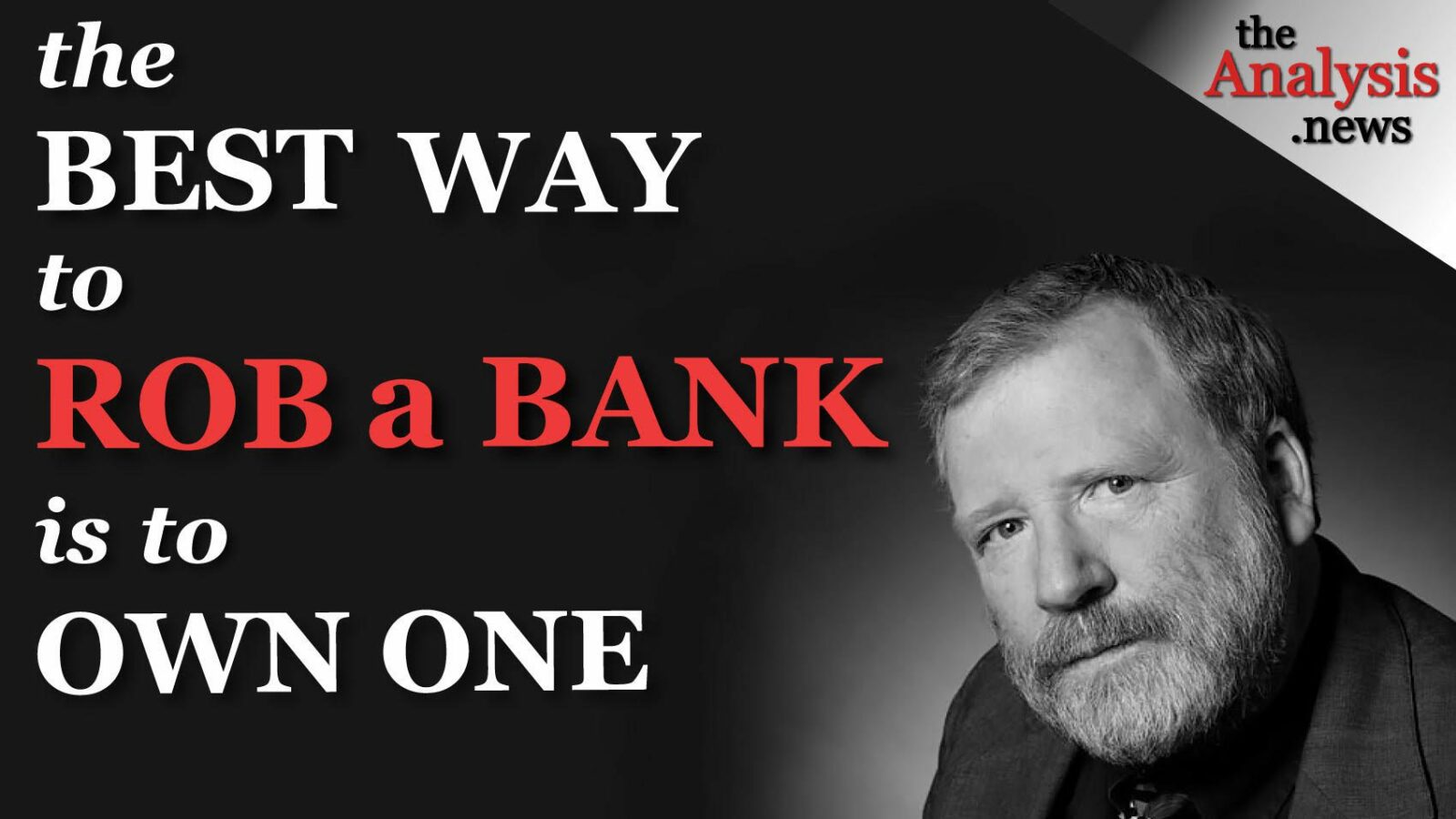
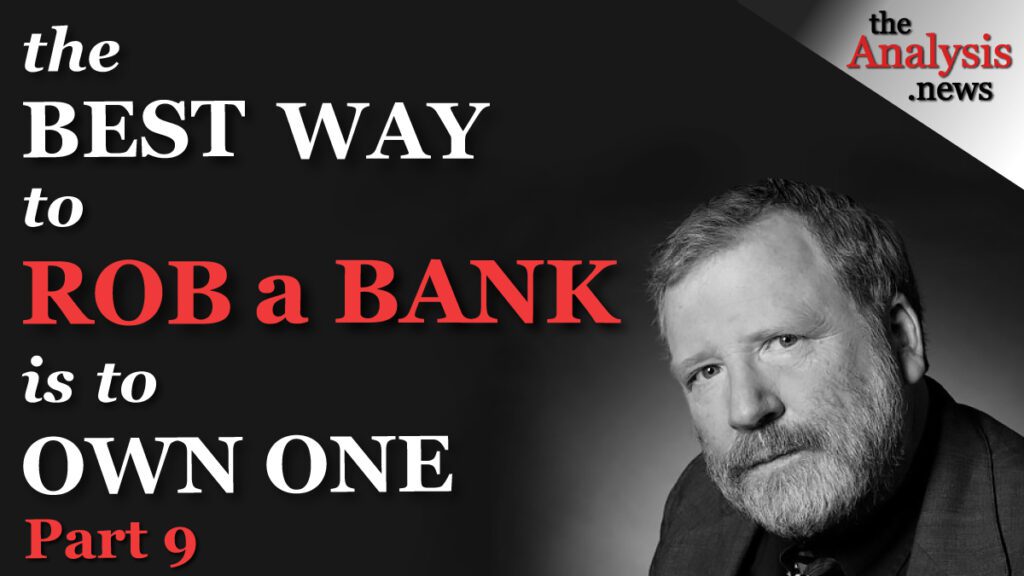
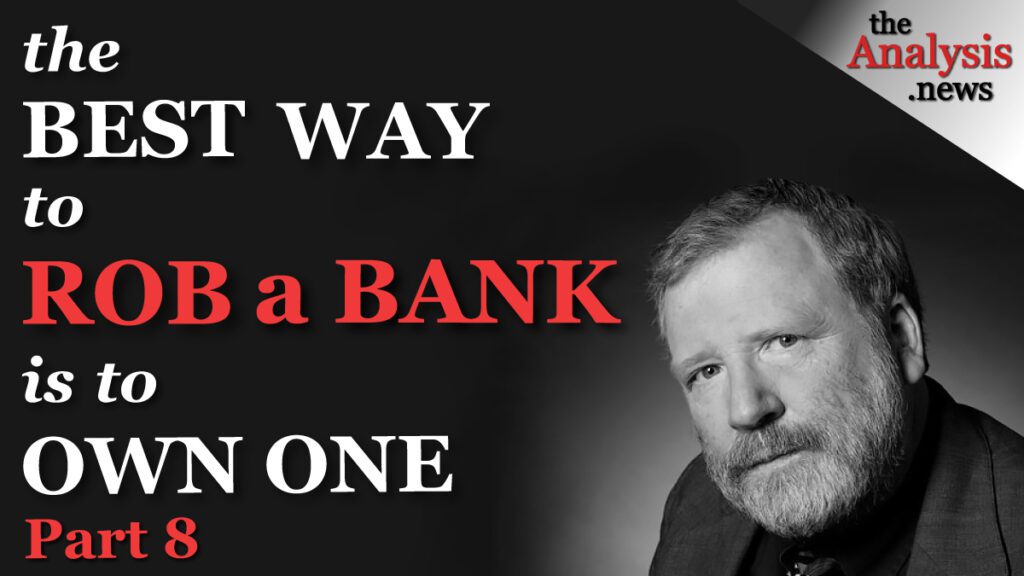
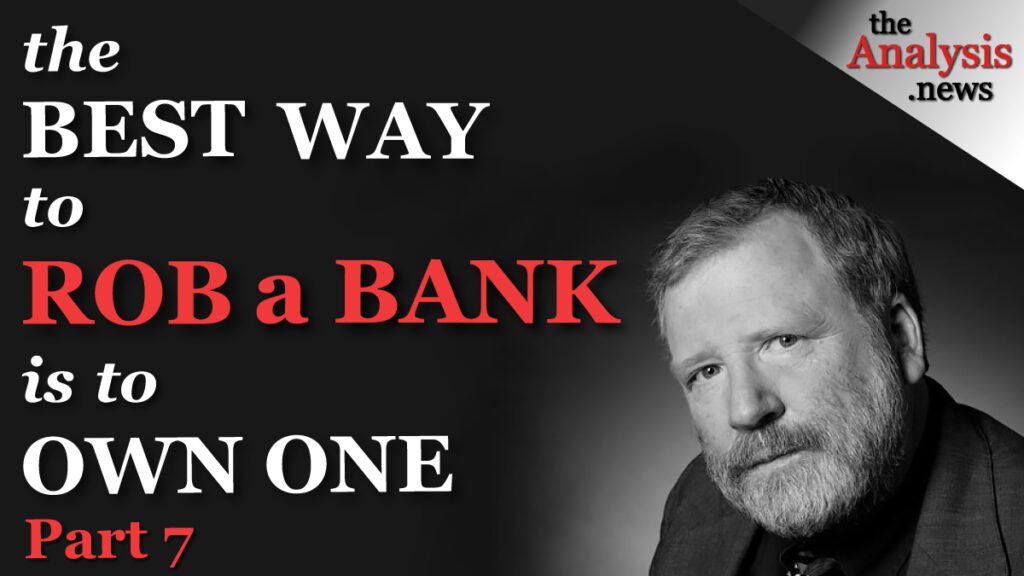
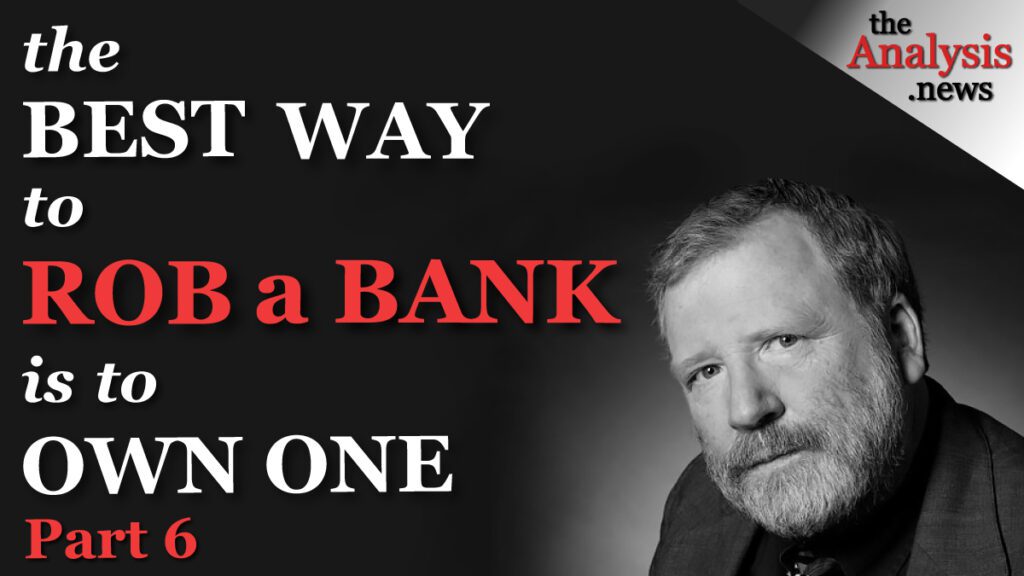
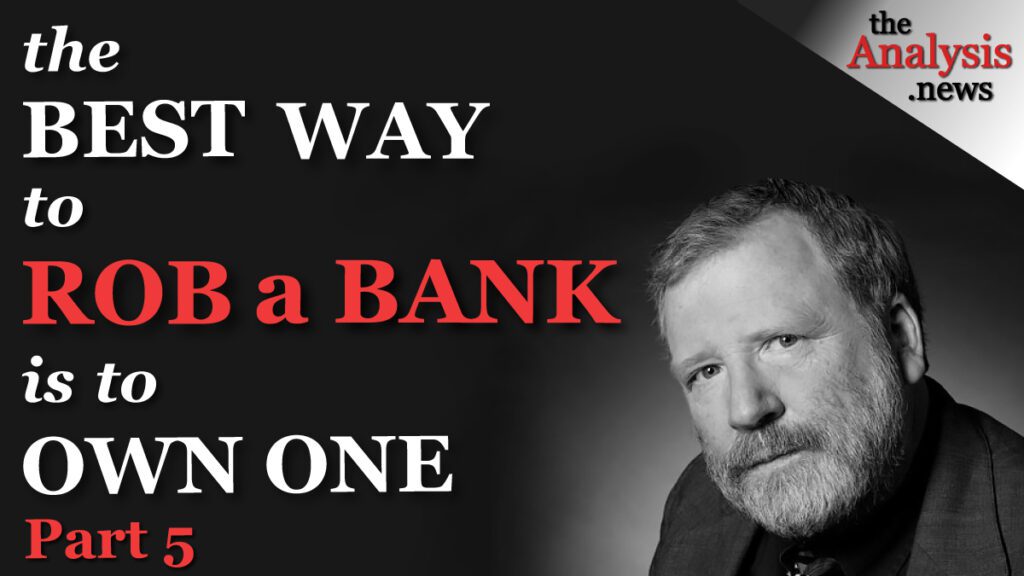
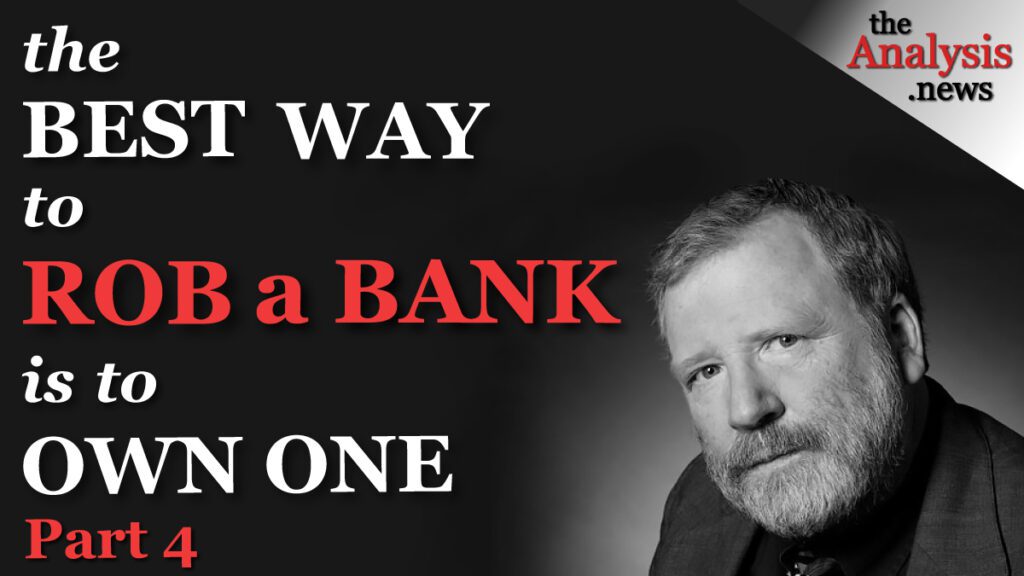
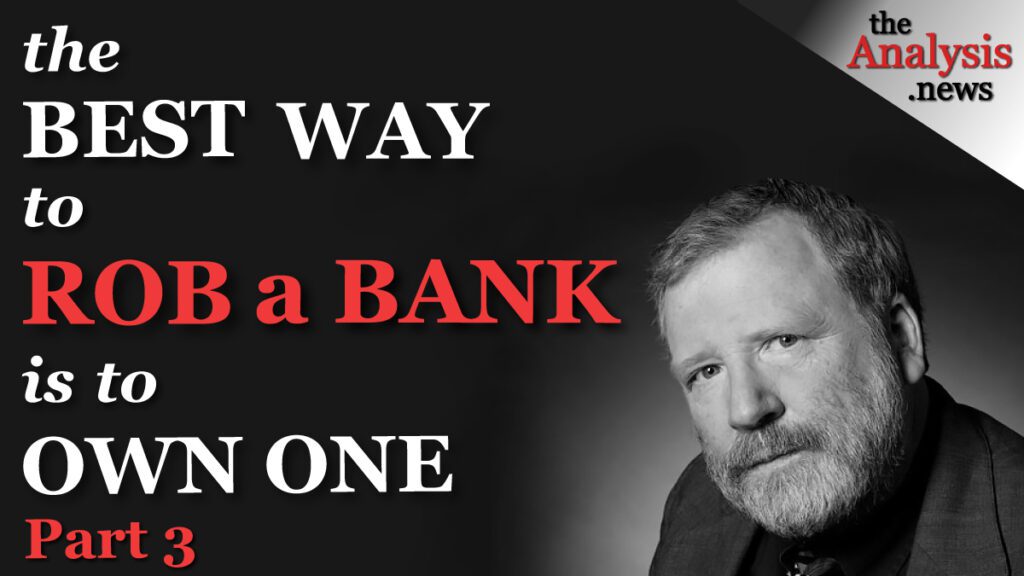
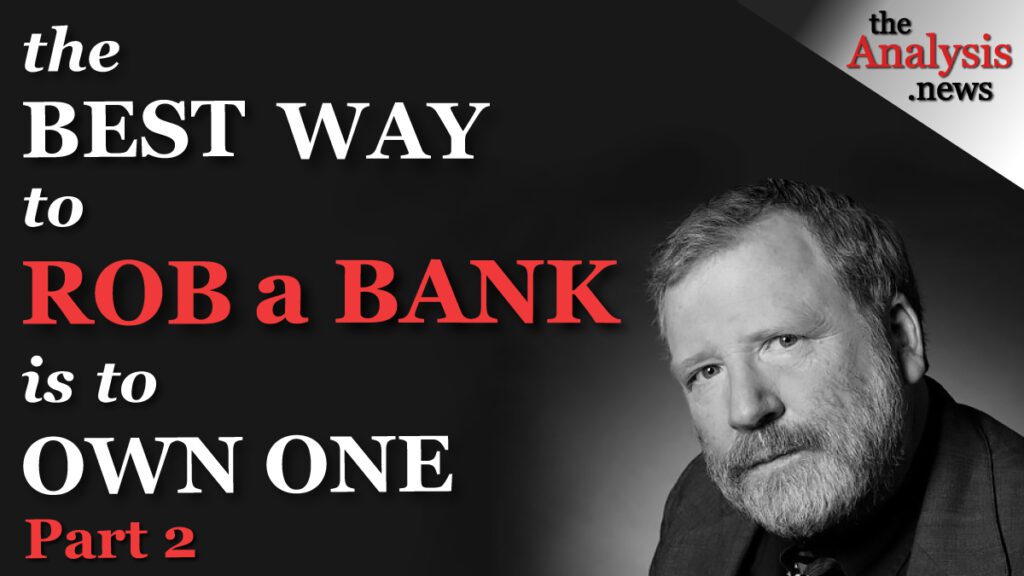
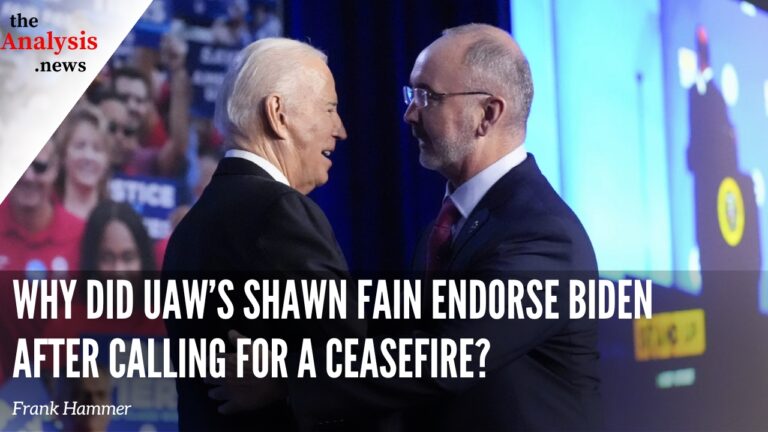
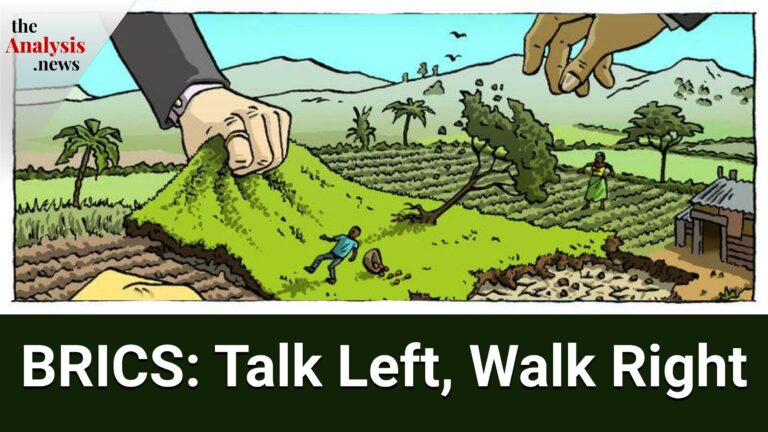
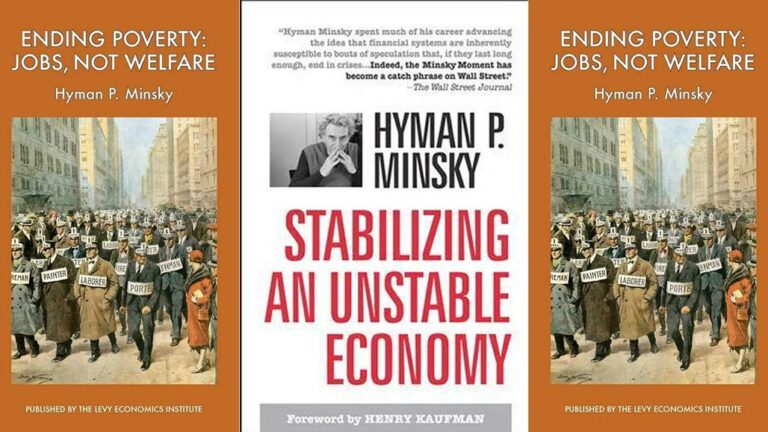
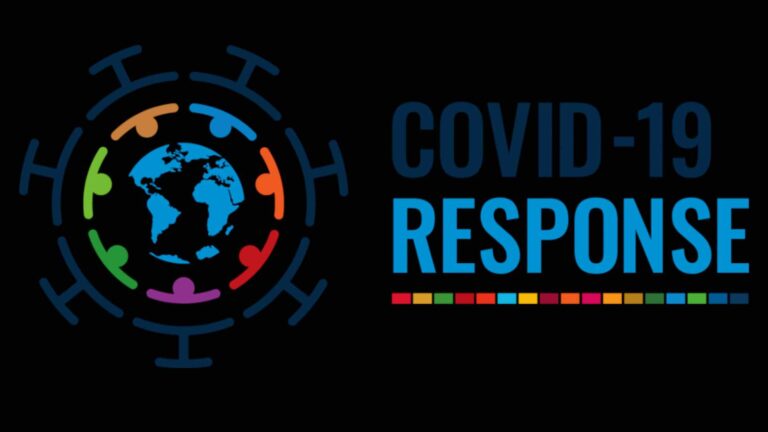
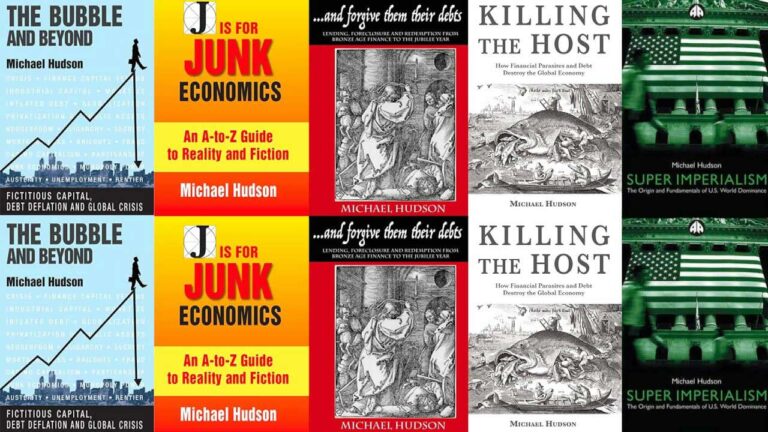
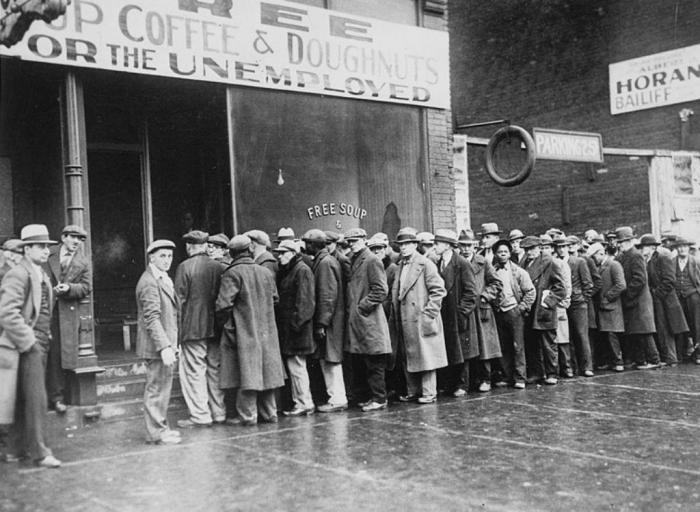
Hi Paul,
Can you ask Mr. Black to clear this up: He says Bush asked Ryan to put the “crooks heads on pikes” and that Bush is a “new regime” (seemingly in favor of a transparent investigation) and then later he says that the first thing Bush did was to make sure an Ed Gray (independent thinker/doer) wouldn’t happen again. That seems contradictory. Thanks
18:05 — I love the clip of Phillip Zimbardo talking about The Lucifer Effect, and I’ve never seen anyone who look more like Lucifer with that beard and pale complexion!! 😉
A great book that talks about this from a less complicated point of view is Evil Geniuses by Kurt Anderson. Only he doesn’t just talk about the Savings & Loan debacle … which is getting less and less relevant as it was IN THE 1980’s .
The other massive fraud was the hollowing out of all of our major companies by the junk bond leverage buyouts … it was economic rape of the entire country … and people are just now getting around to understanding what happened.
Money, as a “thing” is a complete fraud at this point. There is so much bad, junk, criminal money out there that it controls the country, buys the government, gives us scum like these Republicans running our government and locking out any reasonable people that want to and might know how to fix things.
Bill Black has been talking about this for decades now … and what has happened? Not a thing. He is some big hero for coming on a podcast and telling people are few things they don’t know or understand and will forget or get wrong within 10 minutes to moving on to something else.
I’ve been reading about these things for decades, and nothing ever happens. In fact it just gets worse. At least in the S&L thing a few people were caught and punished a little bit.
These financial people hide behind the complexity and opaqueness of their industry and screw the country blind. This means that billions and billions of dollars are the results of criminal actions. And that money compounds faster than all of us working suckers.
If this stuff was in the 80’s just imagine with so much money and power how much easier it was to hide stuff and what they have been doing since … and need we wonder why democracy itself is under attack … these people were the roots of a new fascism.
So who are they, who are they connected to? Where is that money going to? Why is all political money opaque now? We have all this surveillance technology to tell the government what library books I checked out, but with this level of surveillance we should not have crimes like this and we should be able to break this organize crime syndicate up … but know controls all that surveillance? Oh, it’s not the government, the government cannot get permission to wipe its own butt anymore, so it is all private industry.
They hate government but they cannot live without it because they use government to protect themselves.
Bruce K. wrote:
“These financial people hide behind the complexity and opaqueness of their industry and screw the country blind.”
Sounds remarkably like today’s US healthcare industry predators. See MedicareForAll.us (or https://medicareforall.weebly.com).
Looking forward to Part 2 and then Part 3: a look at 2021.
There are many parts to come.
Just to let you know, the download here does not seem to be working, and my Apple podcasts gets an error when I try to download it to iTunes.
I get disgusted when an interview is being conducted on a serious topic like financial fraud and the individual answering the questions keeps inserting chuckles/giggles into his answers. Why does he think he is a comedian? When the topic is as critical as the bank fraud that causes people to lose their homes or destroys people’s lives, there should not be chuckling!
I can’t write books or make documentaries because I am not in a position to do that and no one cares what I think, but, I have had a similar revelation to the fact that the Left is happy to have these little niche “channels” that are guaranteed to not bring about any change.
Lefties write books, they go on tour, they make podcasts – but no one hears them compared to the yell-down from Fox New, and Sinclair, and Sky News, or NewsMax. No one knows they are lying.
All of our Lefist, Democratic, opposition political voice are relegated to the periphery of political discussion, and they never really talk to each other or unite, or prioritize or line up in a coherent way to bring about any vision or change.
They are all of them, just as egotistical and greedy for attention as our billionaire class. I don’t see any of them making sacrifices or bringing leadership to the people to create a popular Leftist movement. Liberal, Progressive, Democratic, Socialist … whatever.
Writing books doesn’t scale. No one that needs to learn this information reads books … they don’t have time they are too busy trying to keep alive and feed themselves and their families and maybe move up. But to move up in this economy one has to sell their souls to the corporatocracy.
I would not be a bit surprised to learn that some right wing data wrangler sells loyalty audits to corporation hiring people so that they shut out people with political tendencies.
Meanwhile the successful people on the Left get famous and more famous they are, the more known, the more they are inculcated into the economy and the less motivation they have to continue being critical.
Look at say Thomas Frank a brilliant political writer, who wrote a nonfiction book, The Wrecking Crew: How Conservatives Rule” that over the years since he wrote it has just become more and more relevant, more and more to the point. The poor guy got almost banished from mainstream media. Now he has decided to leave political writing and commentary, even though he has an understanding of the system that needs to be distributed out there. The motivation is for successful opposition people to join the establishment, as court jesters or fools, comedians.
The successful people who get noticed must laugh about it because they get vacuumed up into the system and the people lose another voice that might support them.
Let us make William K. Black’s name a household word along with the names of Richard Bowen, Michael Winston, Lori Noble, Tom Murphy, Marc Dann and the other courageous folks you can see in The Con and The New Untouchables: The Pecora Files. Here is a link where you can see and hear more from Bill Black, Patrick Lovell and Eric Vaughan.
https://realprogressives.org/new-untouchables/
Absolutely brilliant dialogue and presentation. I couldn’t get enough and I was so excited to learn more are on the way. Mr. Black is a national treasure and somehow someway must become the center of gravity. We’re coming out of the Covid shutdown. Most people have been set back years and yet the market is raging and real estate has surpassed 2006 numbers. Who think’s not a sign of an incredible economic disaster right over the horizon. How it hasn’t already happened is beyond me, but here are. Bravo to Paul Jay for his continuous pursuit of truth. Well done!
Yes. We all knew/known this kind of fraud from 2008 or may be earlier. But why no successive government/admin by both parties (red/blue) ignored then and continue to ignore NOW. So the bankers(thieves) rule the countries?
Thanks guys. Love it that Bill can make it so plain how power and connection really work.
Thanks for doing this series! I’m familiar with it & him from Real News interviews. Also was a real estate broker in California who saw this run-through from the point of view of empowering inner city and counterculture individuals by means of gaining ownership of land (My motto then: “The best way to take over the country is to buy it, because then, as a land-owner, you have a voice and the law serves you.”) The S & L’s were the only sources of funds for those buying old cottages in places like Oakland, Berkeley and Santa Cruz, so it was an opportunity for normally discriminated-against demographics to get a toe-hold. RE prices, however, sky-rocketed due to increased demand. I personally stopped selling bay-area RE when it became clear that it was a set up for being unable to keep up a loan if someone in the family lost their job. I worked with Arlene Slaughter’s Central RE which was Ron Dellum’s RE broker. Arlene was instrumental in getting rid of covenants against selling to POC in the 1960s. We worked with the Black Panthers and Bobbie Seal’s wife was our receptionist. I also facilitated the sale of a great deal of what became the “Emerald Triangle” counterculture in Humboldt/Mendocino/Trinity counties of Northern California–always as a buyer’s agent. I moved into this area of serving the community when LSD became illegal (1966) and post 1980s, I’m a primary author of materials for adult children of alcoholics/PTSD survivors, on the basis, “In Plato’s view, the empowered individual is the anonymous small-holder. In today’s culture, this still holds. Media blows up the trend-setter at first, like a big balloon, and once it’s got this handle, it is in it’s power to pop this balloon, discredit both the person and the truth they’ve been identified with–and move on. That’s current journalism.” Another motto, learned from an old AA member in Northern California, “You know what happens to pioneers? They get arrows in their ass.” A rough metaphor, but still a principle of dealing in ideas, not personalities, given you can slip those into print and currency! I love it that Bill Black’s been able to navigate survival and you’re facilitating getting his experience in the hands and minds of people. Thanks!
And the main stream media says “NOTHING TO SEE HERE”while pushing non stop for the next cold (but probably hot) WAR…how depressing.Nobody wants to talk about this stuff, we are sleepwalking toward disaster.
Thank you for adding comment feature.
I agree. I don’t even bother with one-sided podcasts any more, it is important for listeners to be able to trade opinions … in a civilized manner, and for podcasters to be able to hear or see what their listeners are thinking.
That is also why it is a good idea for podcasters to upload their podcasts to YouTube.
( speaking of YouTube and Google, what even happened with the podcast that Paul Jay did critical of Trump on January 6th? Did they fix that ? )